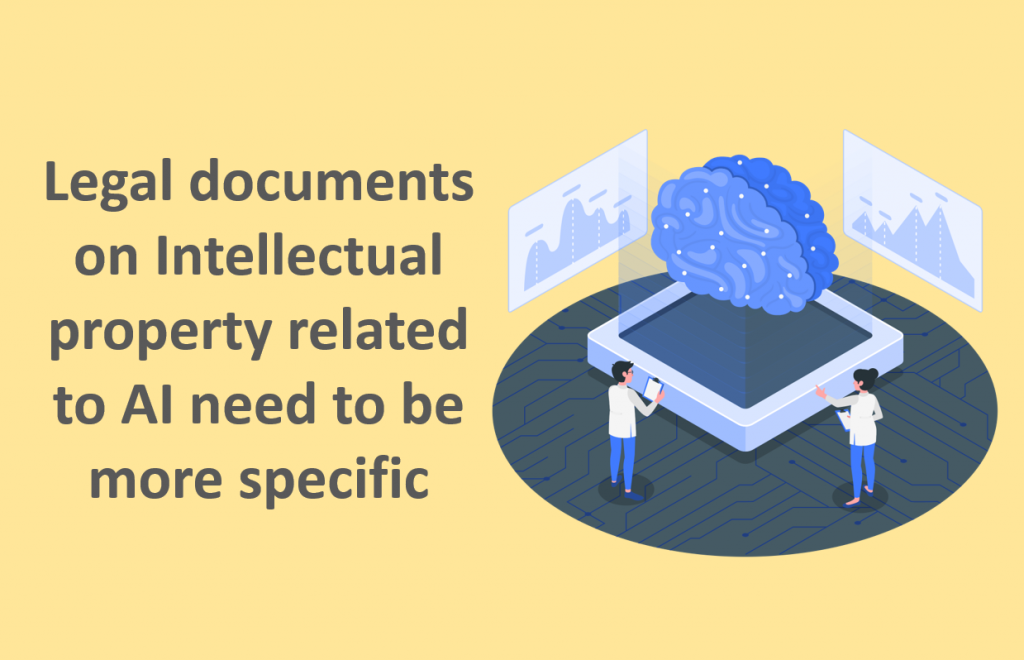AI systems depend a lot on data. Accessing and using data to train AI systems can cause intellectual property problems (IP), when the data is protected by copyright and related rights.
Artificial intelligence and machine learning: Not just for large-scale companies
Artificial intelligence (AI) has been used in many different fields such as labor, health, security, transportation, marketing … However, one of the common misconceptions is public AI technology and machine learning (ML) are thought to be suitable only for large enterprises and not viable for small businesses or startups because of security risks and high costs. With the advancement and decreasing costs of this technology, AI and ML for small and medium enterprises are slowly becoming a reality. Whether in the form of virtual assistants, chatbots or automated robots, AI is bringing business advantages by improving productivity and efficiency, sales quality, and even in human resources …
Specifically, AI helps to extract sales-related insights from customer data, allows business owners to analyze customer feedback and adjust sales activities; properly approach targeted customer; improving care and communication with customers, through the use of automatic chatbots or virtual assistants; modernize inventory operations and processes, as well as make predictions with high reference value; …
Some smart applications for free or low cost such as Bizfly Chat, VietGuys Ai Call Center, Amis.vn, … are gradually popular, small and medium business leaders can consider applying for their businesses. In addition, the ML tools that small businesses can consider such as Google TensorFlow and Spark Mllib can also provide the business: Provide valuable insights into customer behavior based on data online interaction, online purchase history, online transaction type; Provide relevant product recommendations to small e-commerce stores, on the basis of ML tools learned from previous customer purchases and choices; …
Role of Intellectual Property
For SMEs, it is important for them to turn AI and ML into a core competency and adopt an appropriate intellectual property (IP) strategy to protect them.
AI systems depend a lot on data. Access to and use of data to train AI systems can cause IP problems, when the data is images, songs or works of others that are protected by copyright and related rights. relate to. In addition, training an artificial neural network, which mimics a patented procedure, can also be considered a patent infringement.
Businesses may also face other issues such as protection and enforcement of AI-created intellectual assets, or support created because the legal system has not kept up with the progress of the public. turmeric. Dealing with this problem, businesses, especially small and medium enterprises, that apply AI and ML in their production and business activities, must have an effective IP strategy, to maximize profit from investing and researching for AI, while at the same time gaining a competitive advantage over competitors.
This strategy can be the signing of agreements, transfer contracts for data containing IP, of others; Data sets created by the enterprise for AI or ML training should be identified, labeled and applied with security measures to restrict access.
Enterprises can also apply similar measures to principles, structures, algorithms, methods to help ML self-learn, aggregate data, analysis and prediction of AI and ML. However, this method is not optimal as it limits the cooperation and development of AI and ML.
In addition, if businesses create their own software using AI, they should register for copyright and related rights protection of that software, because protecting AI systems is sometimes more important than products created by AI systems.
In addition, participating in open-source projects in the short term, helping to apply and develop AI technology faster, save costs, but not having ownership will be likely to have a negative impact. Therefore, the business should consider developing its own source code while still participating in the open-source community by choosing the right license terms.
Enterprises also need to make a list of the intellectual property related to AI in general and the assets created by AI in particular, to manage, protect and exploit effectively and in accordance with current regulations. For example, technical solutions, new product designs, design products, even AI-generated software execution commands that cannot be registered for IP protection, can apply corporate security measures such as business secrets. At the same time, build strict and detailed transactional contracts related to AI input and output data to fill the gaps due to the lack of a legal corridor to protect these objects.
For the legal and policy system, Vietnam has an IP Strategy to 2030, a National Strategy for AI research, development and application until 2030. This shows the important role of AI and IP. for the development of the country. In order to realize this strategy, it is necessary to synchronize implementation solutions, such as completing legal documents on IP related to AI, promoting research, training, communication, building and improving. database on AI,… In which, it can be seen that the completion of legal documents on IP rights related to AI has been put on top. Once the legal corridor has been completed, businesses can effectively and transparently protect and exploit intellectual property related to AI.
The European Patent Office‘s refusal to patent food containers created by an artificial intelligence entity named Dabus in 2019 under the grounds of Article 58 of the European Patent Convention. The author of the invention must be a human who has sparked a wave of debate about the question: Should IP rights be protected for AI creative results? It is a vivid example of the relentless movement of the technology world that challenges the stability of the legal system. Therefore, the IP system needs to react flexibly and responsibly; minimizing negative impacts while still encouraging the innovation of new technologies.
You can find the list of Vietnam IP Firms here.

